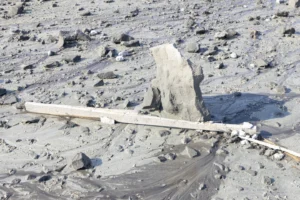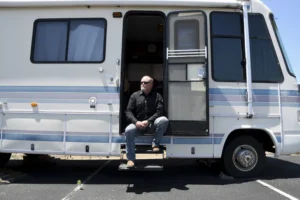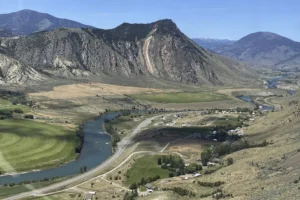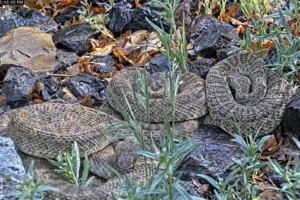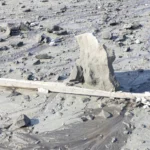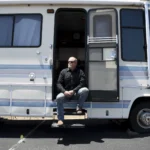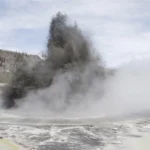WOMEN YOU SHOULD KNOW IN WYOMING: ‘Jill of All Trades’ Leads Wyoming Women’s Foundation
Rebekah Smith Hazelton draws on science, art and legal experience to advocate for women
- Published In: Other News & Features
- Last Updated: Sep 06, 2023
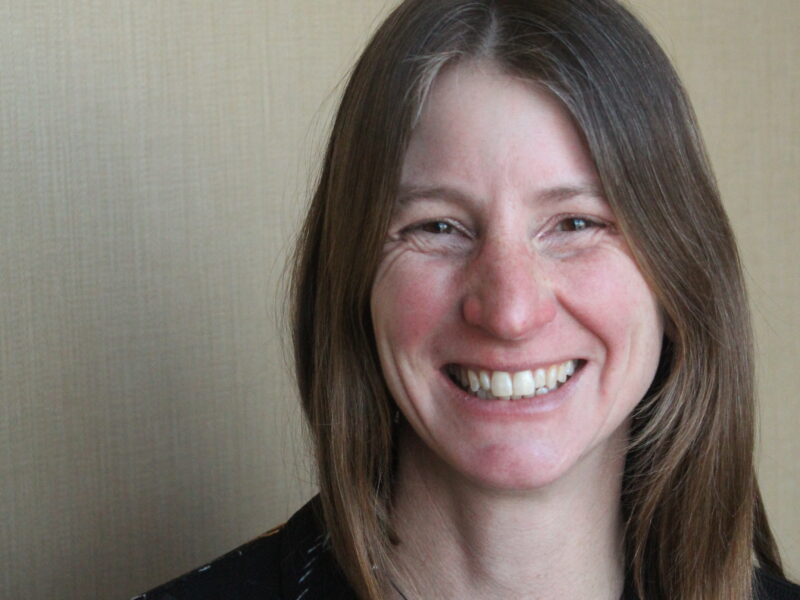
Rebekah Smith Hazelton is the director of the Wyoming Women’s Foundation, a nonprofit dedicated to supporting opportunities for girls and bettering the economic self-sufficiency of women in the state. (Courtesy photo from the Wyoming Women's Foundation)
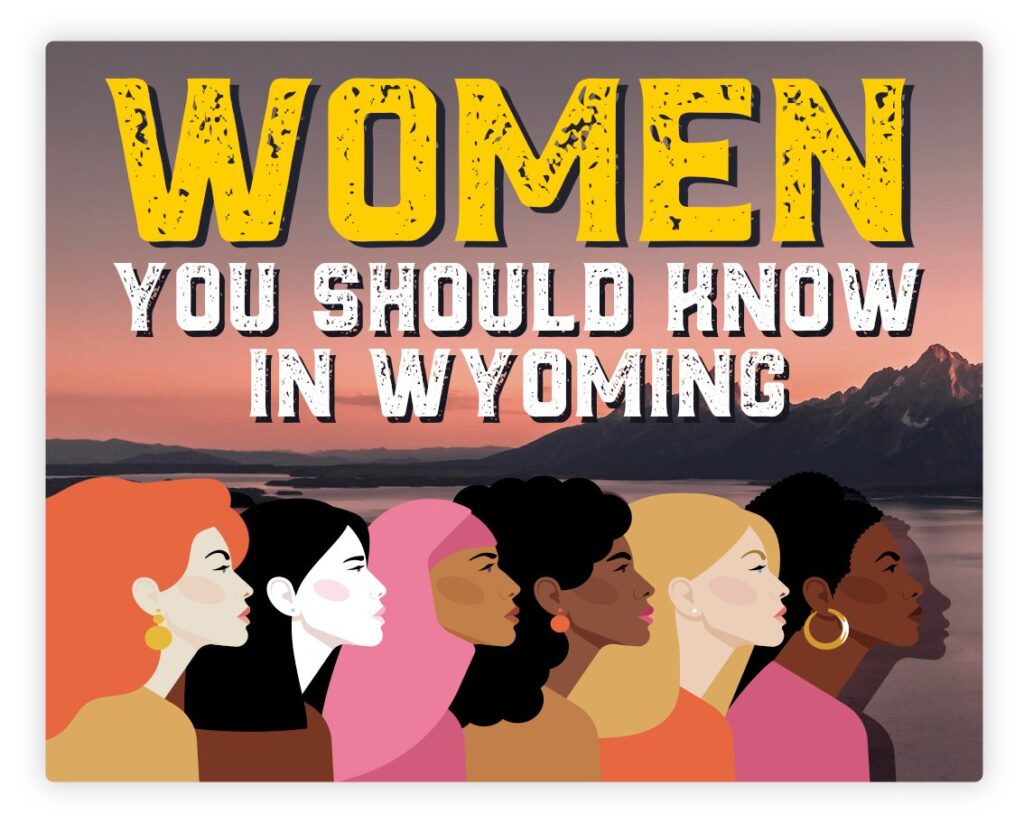
By Erin Banks Rusby
Special to the Wyoming Truth
People like to call Rebekah Smith Hazelton a “Renaissance woman.”
With bachelor’s degrees in zoology and fine arts, as well as a law degree, Hazelton brings a diverse skillset to her work as the director of the Wyoming Women’s Foundation, a priority fund of the Wyoming Community Foundation. The women’s foundation is dedicated to supporting opportunities for girls and bettering the economic self-sufficiency of women in the state.
Hazelton, however, is reluctant to embrace the term.
Instead, Hazelton, who lives in Laramie with her husband and son, has trusted her lifelong love of learning to lead her toward fulfilling pursuits. And she deploys skills from her three degrees in her current role—from facilitating an annual hunting fundraiser for women to managing a program that trains women how to advocate for policy changes in the legislature.
“I say, ‘I’m a Jill of all trades, master of none,’” Hazelton said with a chuckle.
Finding her path
To eke out a career uniquely suited to her interests and strengths, Hazelton, who is in her mid-40s, embraced the twists and turns of her academic path.
While majoring in zoology at the University of New Hampshire, Hazelton wanted to study abroad but no program seemed like a good fit. Then she heard about the National Student Exchange, which sends students to universities in the United States, its territories and Puerto Rico. Drawn to studying in the Rocky Mountains, where she could pursue mountain biking and cross-country skiing, Hazelton selected the University of Wyoming for the second semester of junior year.
Though flying into the dry, yellow-prairie landscape of Laramie in January was a bit of a shock, Hazelton soon found community. She volunteered during the summer with the Wyoming Natural Diversity Database, which catalogs rare animal and plant species in the state, and she finished her degree at UW in 1999.
Hazelton was hired by the Wyoming Natural Diversity Database to conduct surveys for birds that were of interest to oil and gas companies or the Wyoming Department of Game and Fish. But she grew interested in environmental law and enrolled in Vermont Law and Graduate School in 2007.
Meanwhile, Hazelton continued amassing enough undergraduate credits in art classes to earn a bachelor’s degree in fine arts from UW in 2008. She felt drawn to printmaking and painting, particularly watercolor for its portability to the outdoors, and she wanted to combine her love of science and art.
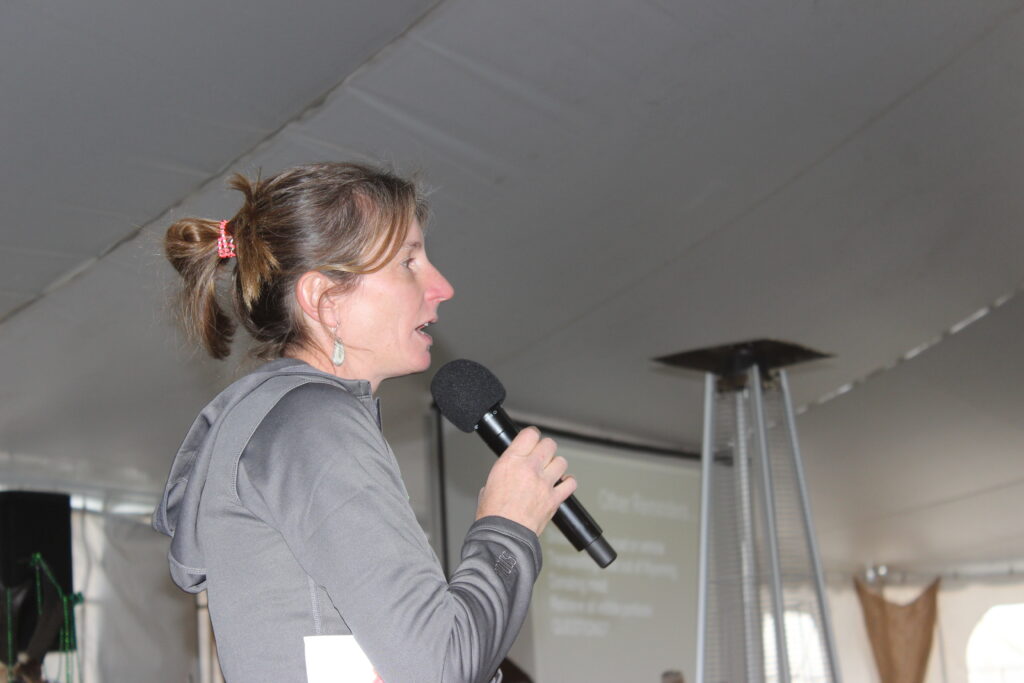
In the course of her legal studies, Hazelton realized she didn’t want to be a lawyer. The outcomes could be rewarding, but the day-to-day “nuts and bolts” were not. She drew on a piece of advice that has served her well (and often) in her career decision-making.
“Someone once said to me, ‘You don’t have to know exactly what you want to do, but do something and you’ll figure it out along the way,’” Hazelton recalled.
Blending education, experience
After graduating from law school in 2010, Hazelton was hired as program coordinator for the Wyoming Women’s Foundation—the start of a career that, she said, has provided a decent blend of her myriad interests. She advanced to program associate and ultimately became director in 2018.
“I found a great niche by just continuing on and trying different things and building on my experience until I got to a point where I found a resting place,” she said.
As program coordinator, Hazelton used her zoology knowledge and graphic design skills to prepare for and promote the foundation’s first antelope hunt in 2013—a weekend-long October fundraiser that offers women access to an integral part of Wyoming culture, as well as mentorship.
This year’s hunt takes place Oct. 12 to 15 at the Ranch at Ucross. Around 46 women from Wyoming and beyond will participate; over the past decade, it has raised $1 million for the foundation.
Hunting can be an important part of women’s self-sufficiency, but not all women have the skill, Hazelton said. The event pairs women, half mentors and half mentees, in what she described as a large matchmaking process. Pairing isn’t strictly novice hunters with experts. Sometimes an expert hunter may have little business experience, so she will be teamed with a woman who is more advanced in her career, Hazelton said.
The hunt emphasizes conservation and ethical practices, which dovetail with Hazelton’s love of nature. And she enjoys increasing the accessibility of hunting for women.
“It has been a really cool journey to see that grow and become more of a self-sustaining event that really changes lives and is just a feel-good weekend for women,” she said.

Aside from the hunt, other aspects of the director role also draw on Hazelton’s varied skills. Her law background comes into play during the state’s legislative session. The foundation trains women to talk to legislators about issues that matter to them, such as early childhood education and childcare, which provides lawmakers with useful information to help them make decisions, she said.
“Part of what we do is [help] bubble these conversations to the surface,” Hazelton said, “so that our decision makers know that they’re important to the people of Wyoming.”
The foundation also sponsors studies to better understand Wyoming women’s economic standing, and it has found that the state has one of the largest wage gaps between women and men. According to its 2022 study, women in Wyoming earn $0.75 for every dollar men make, but the national average is $0.82, per a report from the Pew Research Center. Though industry differences can somewhat explain the discrepancy — men often work in high-paid construction jobs — it is not the entire picture, Hazelton noted.
Avenues to empowerment
Samin Dadelahi, president and chief executive officer of the Wyoming Community Foundation, the umbrella organization of the Wyoming Women’s Foundation, said Hazelton strives to walk the talk of advocating for women in her professional circles, too. In addition to promoting policy changes for the economic self-sufficiency of women in Wyoming, she seeks to equip her colleagues with those same skills, Dadelahi said.
Hazelton makes a point to educate employees about how to negotiate salaries. Dadelahi knows this firsthand, because she has negotiated wages with employees whom Hazelton has trained.
“It is something that she believes in strongly, and she is very willing to support them,” Dadelahi said.
Since becoming director, Hazelton has secured a third full-time position for the foundation’s advocacy program; she considers it one of her crowning achievements.
“That has really allowed us to connect to more people around the state because we have that grassroots element to it,” she said. “We are trying to get the word out to folks about what is happening for women and girls in the policy arena.”
Looking ahead, Hazelton wants to ensure the foundation’s long-term sustainability by growing its $1.6 million endowment and encouraging donors to leave a legacy via their estate planning.
Hazelton said it is about “preparing for the future and making sure that this resource for women and girls is truly permanent and self-sustaining. I think that’s a really exciting challenge.”

